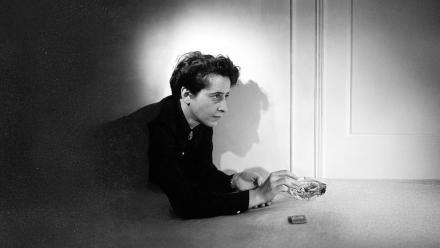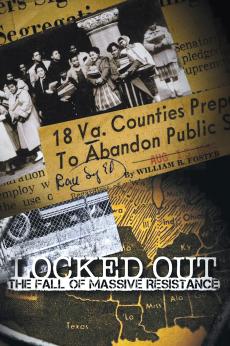Hannah Arendt: Facing Tyranny
Discover Hannah Arendt, one of the most fearless political thinkers of the 20th century, who transformed her time as a political prisoner and refugee during World War II into daring insights about totalitarianism which continue to resonate today.
Previews + Extras

Hannah Arendt: Facing Tyranny
S39 E5 - 2m
Discover Hannah Arendt, one of the most fearless political thinkers of the 20th century, who transformed her time as a political prisoner and refugee during World War II into daring insights about totalitarianism which continue to resonate today.

What sparked Hannah Arendt's ideas behind "The Origins of Totalitarianism"
S39 E5 - 2m 49s
Adolf Hitler projected his own narrative into his campaign speeches, giving his followers a coherent story that the Nazi movement was winning, even when they weren’t. Hannah Arendt began to come up with ideas for “The Origins of Totalitarianism” while observing what Hitler provided his followers: “The Nazis translated the propaganda lies of the movement into a functioning reality.”

Hannah Arendt’s reflections on being a refugee
S39 E5 - 1m 14s
Upon fleeing Germany to France in 1933 without her official papers, Hannah Arendt became a stateless person. After Germany invaded France in 1940 and Arendt was sent to Gurs camp, Arendt, her husband Heinrich Blücher and her mother were able to secure exit papers to New York City. They arrived in the city in 1941, where Arendt reflected on being a stateless person: “We lost our home.”

Why McCarthyism was familiar to Hannah Arendt
S39 E5 - 2m
Hannah Arendt was teaching at Berkeley when McCarthyism took hold of the United States. She found the outrage, fear and chilling effect similar to her experiences in 1930s Germany: “They are introducing police methods, they name names, and in this way, the informant system is being integrated into the society.”

How Hannah Arendt developed the concept of "the banality of evil"
S39 E5 - 3m 39s
Hannah Arendt came up with the concept of “the banality of evil” during her coverage of the 1961 trial of Adolf Eichmann. During the trial, Eichmann, one of the main organizers of the Holocaust, insisted that he was only obeying the law and following orders. Arendt said: “There’s simply the reluctance ever to imagine what the other person is experiencing. That is the banality of evil.”
Similar Shows



Swimming in Auschwitz
History

Gods of Tennis
History

Blank on Blank
History


The Bomb
History


Elvis and the USS Arizona
History

PBS PASSPORT
Stream tens of thousands of hours of your PBS and local favorites with WETA+ and PBS Passport whenever and wherever you want. Catch up on a single episode or binge-watch full seasons before they air on TV.